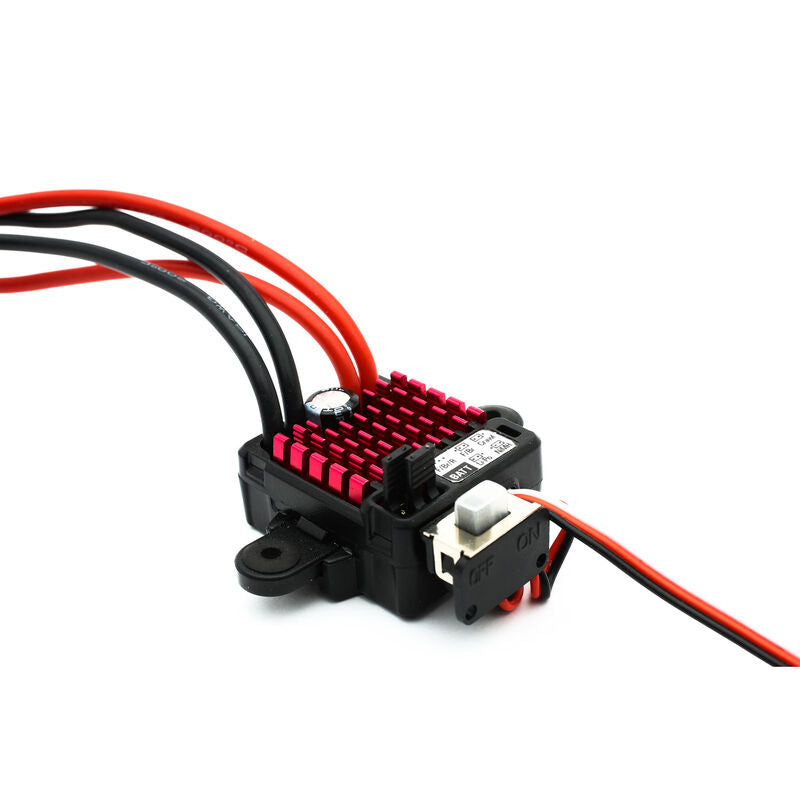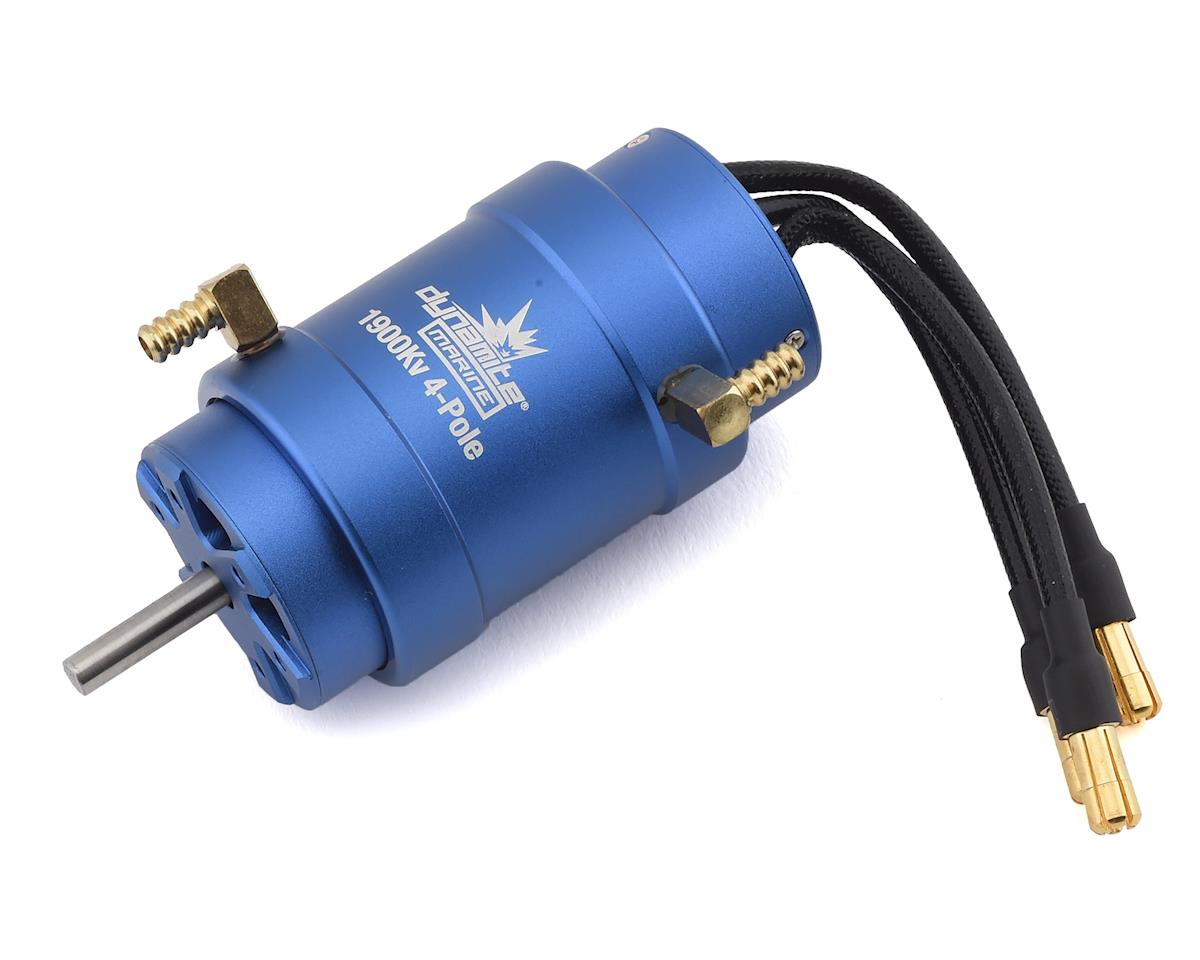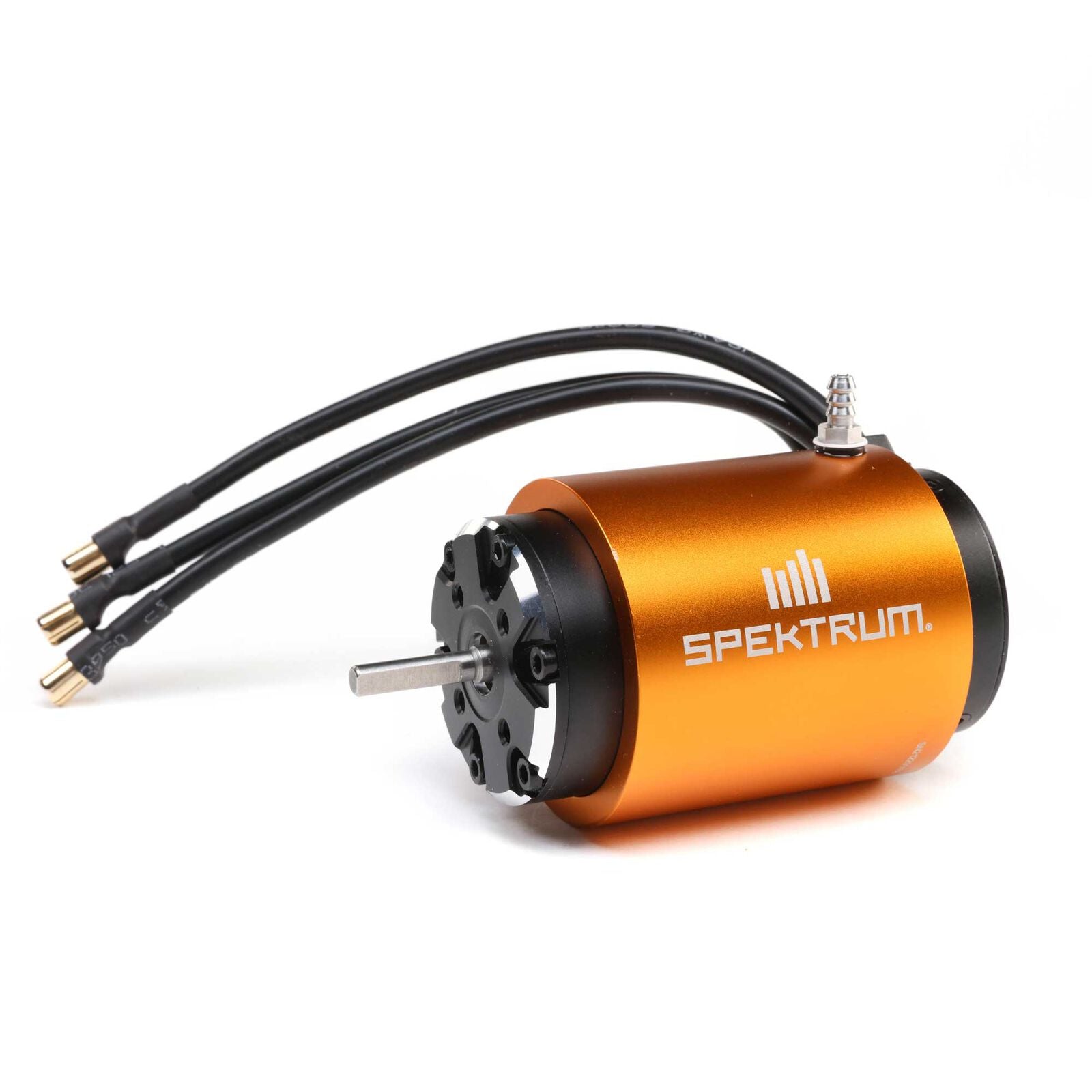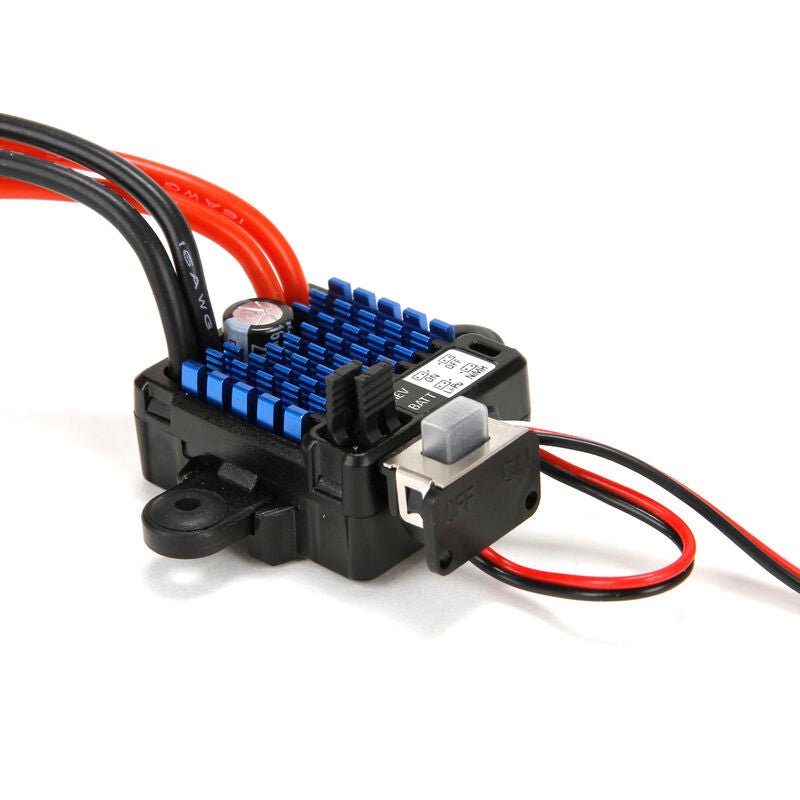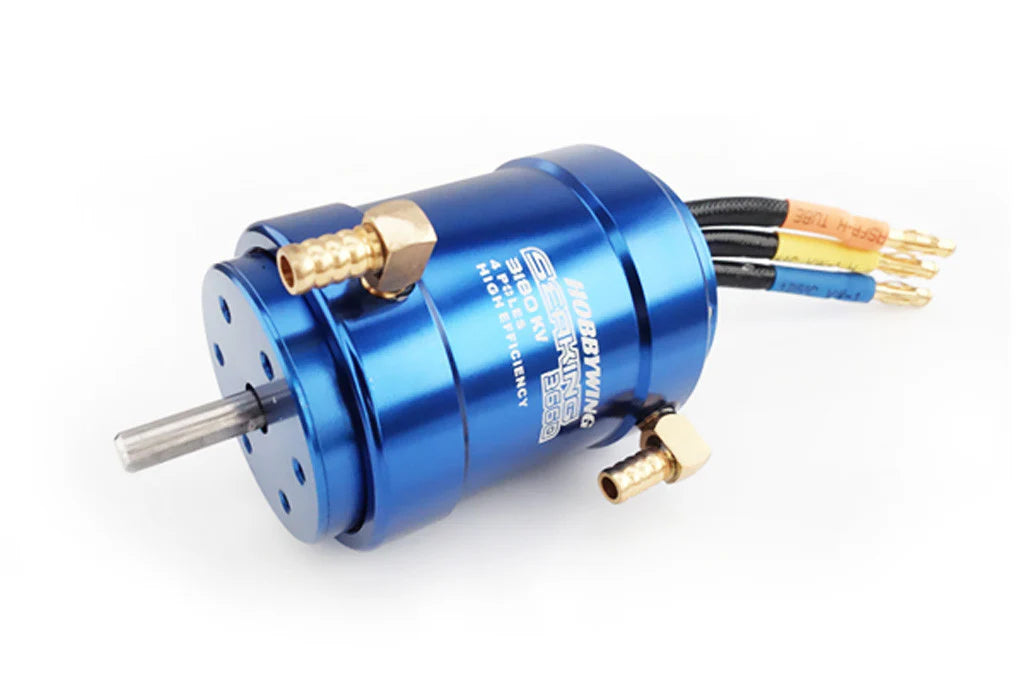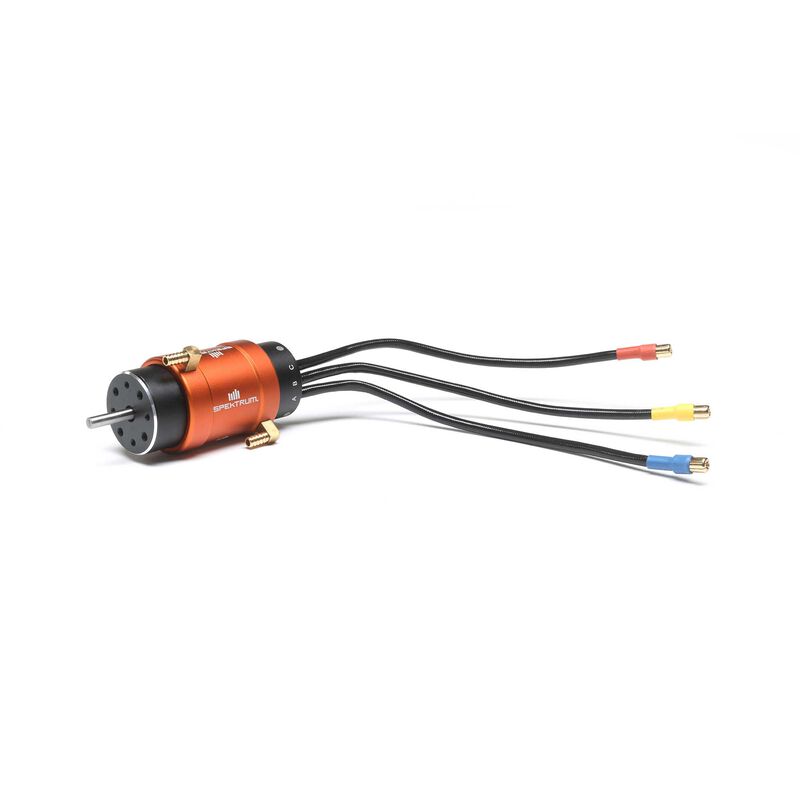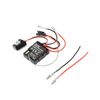While it might not sound like the most thrilling topic, boat motors are something every RC sailor should learn about. You can find more detailed information on it elsewhere, but because shoppers at RCVisions.com always want to get going and try our excellent RC vehicles. We'll try to keep it brief and easy to digest.
Types of RC boat motors:
-
Brushed motors: These are the more traditional type. They're generally cheaper and easier to control but less efficient and prone to wear.
-
Brushless motors: More advanced and efficient. They offer higher performance and longer lifespan but come with a higher price tag.
Motor specifications:
-
KV rating: Indicates the motor's RPM per volt. Higher KV means faster speed but lower torque.
-
Turns: Refers to the number of wire turns in the motor. Lower turns mean higher KV and speed, while higher turns mean more torque and efficiency.
-
Power: Measured in watts. Higher wattage means more power but also higher current draw.
Factors to consider when choosing a motor:
-
Boat size and weight: Larger and heavier boats require motors with more torque and power.
-
Desired speed and performance: Consider whether you prioritize speed or runtime and choose a motor with the appropriate KV and power.
-
Battery compatibility: Make sure your chosen motor can handle the voltage and current output of your battery.
Popular Brands for Motors
-
Dynamite: Known for their powerful and reliable brushless motors, Dynamite offers a range of options suitable for various boat sizes and performance needs.
-
Traxxas: Traxxas motors are well-regarded for their durability and high performance, making them a popular choice among RC boat enthusiasts.
-
ProBoat: ProBoat offers a selection of both brushed and brushless motors designed specifically for their line of RC boats, ensuring compatibility and optimal performance.
-
Castle Creations: Castle Creations motors are renowned for their efficiency and power, offering a range of brushless options for demanding RC boating applications.
RC Boat ESC
What Are ESCs?
ESCs sound like a sci-fi term, but they're not so out-of-this-world as all that. In fact, they're crucial RC tools in any RC boat setup. An Electronic Speed Controller is essentially the brain of your boat's power system. It takes the signal from your receiver and translates it into power for your motor, controlling its speed and direction.
How ESCs work:
When you move the throttle on your transmitter, it sends a signal to the receiver in your boat. The receiver then passes that signal to the ESC, which interprets it and sends the appropriate amount of power from the battery to the motor. The ESC also regulates the motor's direction, allowing you to control whether your boat moves forward or reverse.
Types of ESCs:
-
Brushed ESCs: Designed for use with brushed motors. They're simpler and cheaper but less efficient.
-
Brushless ESCs: Made for brushless motors. They're more advanced, offering better performance and programmability.
ESC features:
-
Battery Eliminator Circuit (BEC): Many ESCs have a built-in BEC, which allows them to power the receiver and servos without a separate battery.
-
Programmable settings: Some ESCs allow you to adjust settings like throttle curve, timing, and low voltage cutoff for optimal performance.
-
Waterproofing: For RC boats, it's essential to choose an ESC with adequate waterproofing to prevent damage.
Matching Motors and ESCs
Here are some key factors to consider when matching motors and ESCs:
-
Motor type: Brushed motors require brushed ESCs, while brushless motors need brushless ESCs. Make sure you choose one that matches your motor type.
-
Voltage and current: Your ESC must be able to handle the voltage and maximum current draw of your motor and battery setup. Check the specifications of your motor and battery and choose one with an appropriate voltage range and amp rating.
-
Boat size and weight: Larger and heavier boats require more powerful motors and ESCs.
-
Programmability: If you enjoy the fiddly bit about RC vehicles, make sure to look for an ESC with programmable settings. They'll let you adjust factors like throttle curve, brake strength, and timing.
-
Waterproofing: Most ones made specifically for RC boats are safe to use in water. Make sure that both your motor and ESC are protected against water damage.
When in doubt, consult the manufacturer's recommendations or seek advice from experienced RC boating enthusiasts.
RC Visions Recommends
There are so many top motors and ESCs in our RC store that we recommend you have a good look around. Some might suit your boat better than others, but feel free to look at the lot and hopefully will suit your RC needs. We recommend checking out the Spektrum 4685 4 pole Brushless Marine Motor or the Dynamite 3674 4-Pole Brushless Marine Motor.

